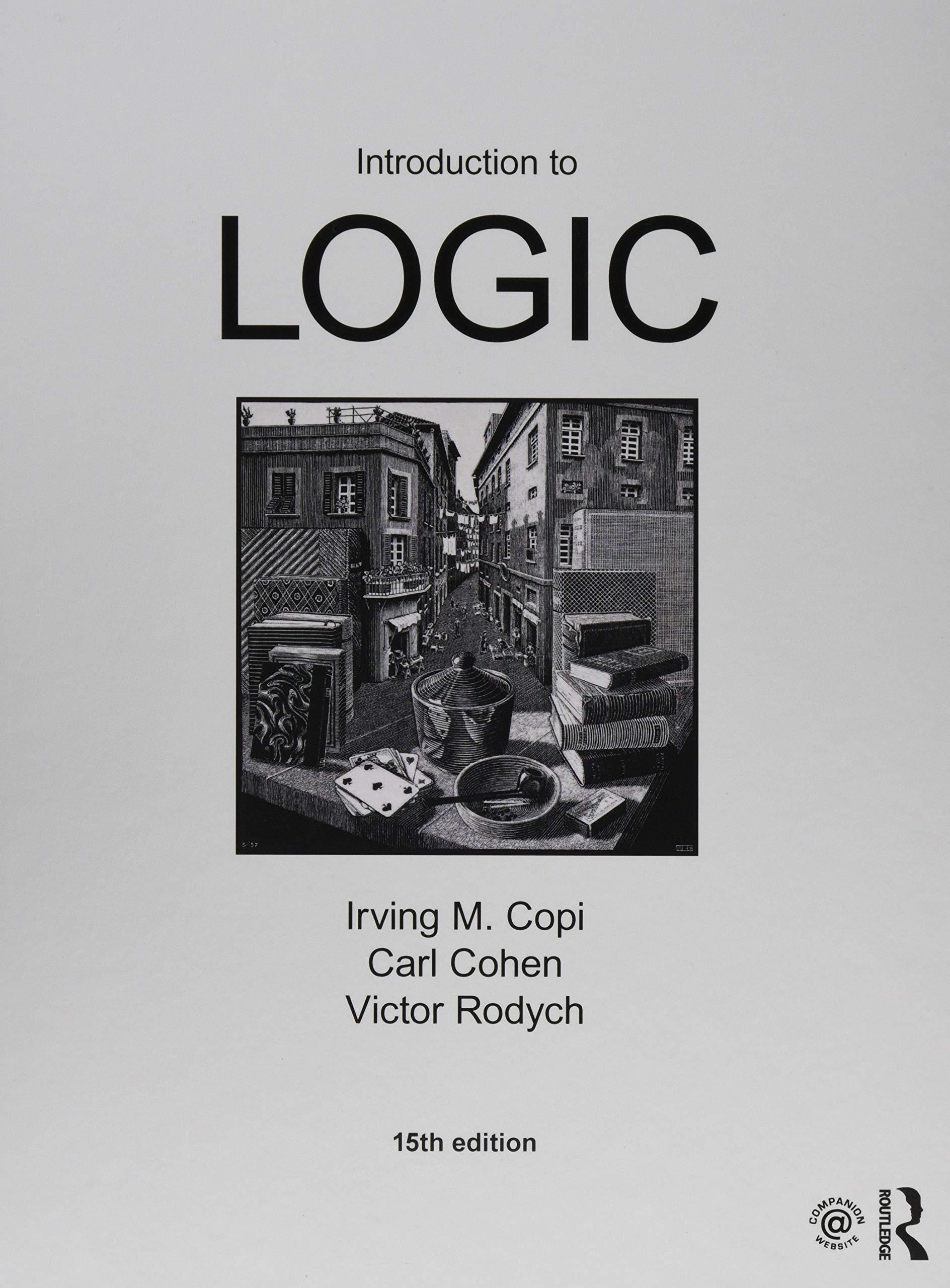The following problems require reasoning for their solution. To prove that an answer is correct requires an
Question:
The following problems require reasoning for their solution. To prove that an answer is correct requires an argument (often containing subsidiary arguments) whose premises are contained in the statement of the problem—and whose final conclusion is the answer to it. If the answer is correct, it is possible to construct a valid argument proving it. In working these problems, readers are urged to concern themselves not merely with discovering the answers but also with formulating arguments to prove that those answers are correct.
On a certain train, the crew consists of the brakeman, the fireman, and the engineer. Their names, listed alphabetically, are Jones, Robinson, and Smith. On the train are also three passengers with corresponding names, Mr. Jones, Mr. Robinson, and Mr. Smith. The following facts are known:
a. Mr. Robinson lives in Detroit.
b. The brakeman lives halfway between Detroit and Chicago.
c. Mr. Jones earns exactly $40,000 a year.
d. Smith once beat the fi reman at billiards.
e. The brakeman’s next-door neighbor, one of the three passengers mentioned, earns exactly three times as much as the brakeman.
f. The passenger living in Chicago has the same name as the brakeman. What is the engineer’s name?
Step by Step Answer:

Introduction To Logic
ISBN: 9781138500860
15th Edition
Authors: Irving M. Copi, Carl Cohen, Victor Rodych





